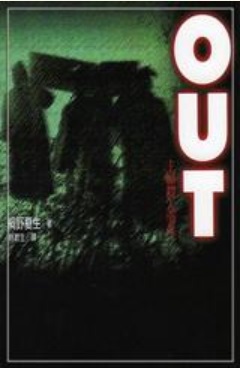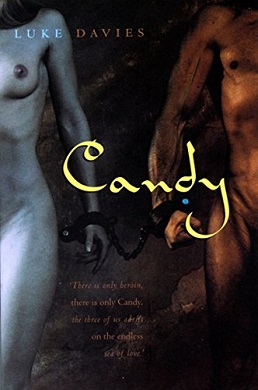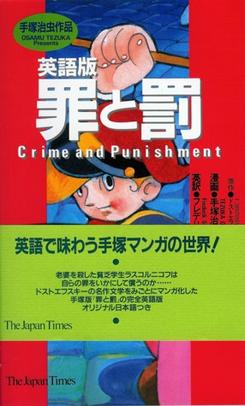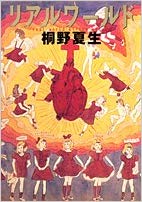
Last Exit to Brooklyn is a 1964 novel by American author Hubert Selby Jr. The novel takes a harsh, uncompromising look at lower class Brooklyn in the 1950s written in spare, stripped-down prose.
Prostitution is illegal in Russia. The punishment for engagement in prostitution is a fine from 1500 up to 2000 rubles. Moreover, organizing prostitution is punishable by a prison term. Prostitution remains a very serious social issue in Russia.

A Wild Sheep Chase is the third novel by Japanese author Haruki Murakami. First published in Japan in 1982, it was translated into English in 1989. It is an independent sequel to Pinball, 1973, and the third book in the so-called "Trilogy of the Rat". It won the 1982 Noma Literary Newcomer's Prize.

Dance Dance Dance is the sixth novel by Japanese writer Haruki Murakami. First published in 1988, it was translated into English by Alfred Birnbaum in 1994. The book is a sequel to Murakami's novel A Wild Sheep Chase. In 2001, Murakami said that writing Dance Dance Dance had been a healing act after his unexpected fame following the publication of Norwegian Wood and that, because of this, he had enjoyed writing Dance more than any other book.
Natsuo Kirino is the pen name of Mariko Hashioka, a Japanese novelist and a leading figure in the recent boom of female writers of Japanese detective fiction.

The Falcon at the Portal (1999) is the 11th in a series of historical mystery novels by Elizabeth Peters, first published in 1999. It features fictional archaeologist and sleuth Amelia Peabody. The story is set in the 1911–1912 dig season in Egypt.

Out (アウト) is a 1997 Japanese crime novel written by Japanese author Natsuo Kirino and published in English in 2004. The novel won the 51st Mystery Writers of Japan Award for Best Novel. It is Kirino's first novel to be published in the English language. This novel is currently published by Vintage, part of Random House, in Britain and has been translated into English by Stephen Snyder. The English translation was nominated for the 2004 Edgar Award for Best Novel.

Candy: A Novel of Love and Addiction (1997) is a novel by Luke Davies.
A Woman in Berlin is a memoir by German journalist Marta Hillers, originally released anonymously in 1954. The identity of Hillers as the author was not revealed until 2003, after her death. The memoir covers the period between 20 April and 22 June 1945 in Berlin during the capture and occupation of the city by the Red Army. The work depicts the widespread rape of civilians by Soviet soldiers, including the rape of the author. It also looks at a woman's pragmatic approach to survival, which involved relying on Soviet officers for protection.

Crime and Punishment is a manga by Osamu Tezuka, based on Fyodor Dostoevsky's book Crime and Punishment that was published in 1953. In 1990 The Japan Times published a bilingual edition featuring an English translation by Frederik Schodt in Student Times. In Russia it was licensed by Comics Factory and was published in March 2011.

The Family of Pascual Duarte is a 1942 novel written by Spanish Nobel laureate Camilo José Cela. The first two editions created an uproar and in less than a year it was banned. A new Spanish edition was revised in 1943 in December of that year.

Marrying Buddha is the second novel by Chinese author Wei Hui and is a sequel to her first published novel, Shanghai Baby. The English translation was made in 2005.

Oreimo, short for Ore no Imōto ga Konna ni Kawaii Wake ga Nai, is a Japanese light novel series written by Tsukasa Fushimi, with illustrations provided by Hiro Kanzaki. The story depicts high school student Kyosuke Kosaka who discovers that his standoffish younger sister Kirino is actually an otaku with an extensive collection of moe anime and younger sister–themed eroge she has been collecting in secret. Kyosuke quickly becomes Kirino's confidant for her secret hobby.

Real World is a novel by Japanese author Natsuo Kirino. It was published by Vintage Books on July 15, 2008 in an English translation by Philip Gabriel.

Julia Bulette was an English-born American prostitute in Virginia City, Nevada, a boomtown serving the Comstock Lode silver mine. She was murdered in 1867, and a French drifter named John Millain was quickly convicted and hanged for the crime. Subsequent legends surrounding Julia's life and status as a sex worker and a madam have grown over time and become a part of Virginia City's folklore.
Yasuko Watanabe was a 39-year-old unmarried Japanese woman, a senior economic researcher at the Tokyo Electric Power Company (TEPCO) moonlighting as a prostitute on the streets by night. She fell victim to murder by strangulation and rape by an unknown assailant in Harajuku, Shibuya on March 9, 1997. After being reported missing by her mother with whom she lived, her body was discovered on March 19, 1997 in a vacant apartment in the Maruyamachō neighborhood of Shibuya, Tokyo where she engaged in prostitution.

Kang Young-sook is a South Korean novelist.

Kirino Kousaka is a fictional character and the main female protagonist of the light novel, anime, and manga series Oreimo, written by Tsukasa Fushimi and illustrated by Hiro Kanzaki. In the series, Kirino is a model student with excellent grades, competent athletic skill and great popularity. On the other hand, she's secretly an otaku with a fetish for "little sister"-themed eroge she has been collecting in secret. With the help of her older brother Kyousuke, who becomes her confidant, Kirino tries to reconcile her personal life with her secret hobby.

City Crimes; Or, Life in New York and Boston is an 1849 novel by George Thompson, writing under the penname of "Greenhorn". The novel was written for the working class and meant to give a shock to its readers through its use of graphic violence among several characters and sexual promiscuity, specifically among women. It is considered by critics to fall within several genres such as sensational literature and urban gothic and to have laid the groundwork for the city mysteries genre.
The Women of al-Basatin is a novel written by Tunisian novelist Habib Selmi and published by The House of Arts in 2010. It was selected on the short list for the World Prize for Arabic Fiction in 2012. The novel is about Tawfiq, a Tunisian immigrant in France who visits his brother Ibrahim's house in Al-Basatin district of Tunis in Tunisia, for the summer holidays. The novel's second edition was published in 2012 and translated into French as Smile, You're in Tunisia! by Actes Sud House in 2013.














